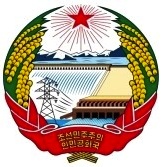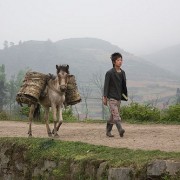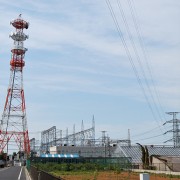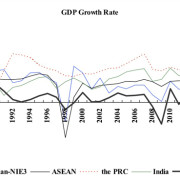Archive | January, 2012
Governance and public sector management
 Governance and public sector management
Social development and protection
Governance and public sector management
Social development and protection
 Infrastructure
Infrastructure
 Miscellaneous
Miscellaneous

Survival instinct behind the apparently smooth transition in Pyongyang

The death of North Korea’s Marshal Kim Jong Il, the Lodestar of the 21st century, was sudden but not unexpected. The Dear Leader, as he was usually called, suffered a stroke in 2008, and aged significantly after that. Soon after the stroke, Kim Jong Il began to prepare for his eventual demise. In 2010 his third son, 28-year-old Kim Jong Un, was made a four-star general and soon began to be featured by the official media as a young genius of leadership. Simultaneously, Kim Jong Il’s sister and her husband (both in their mid-60s), were promoted to top government positions—obviously on the assumption that they would act as regents for the young and inexperienced dictator should Kim Jong Il die soon.
Development Process Often Boosts Power of Local Bosses
Today, ordinary people in villages and towns in many parts of Asia enjoy more freedom, choice and power than ever before. This is in large part due to the expansion of markets and elections to encompass growing numbers of consumers and citizens, along with the devolution of state power into local hands. Against this backdrop, considerable interest has focused on the role of “local elites” in Asia: “bosses and dynasties” in the Philippines, “goondas” in India, “village emperors and local mandarins” in Viet Nam and PRC. By maintaining monopolistic, authoritarian control over markets, state resources and votes, these local elites are seen to be blocking the emancipatory effects of globalization, democracy and decentralization.
Time for the PRC to stop buying US Treasuries and start investing in its people

The PRC needs to redirect money away from increasing its external reserves and toward spending on education, health care, and affordable housing to improve the well-being of its citizens. The PRC would benefit greatly from an exchange rate regime characterized by a multiple-currency, basket-based reference rate, and a reasonably wide band. Greater exchange rate flexibility would allow more decoupling between PRC and US interest rates, helping the People’s Bank of China (PBOC) to implement monetary policy that is best for the nation. The PRC’s exchange rate interventions to sustain the export-oriented thrust of the economy are not helpful to the nation for several reasons.
Urgent need to restructure Japan’s Electric Power Industry after Fukushima

Austrian economist Joseph Schumpeter argued that the “process of creative destruction,” whereby new industries are created by destroying the old combinations and creating new ones, is essential to drive growth. Japan’s electric power industry finds itself at such an evolutionary crossroads.The Fukushima nuclear disaster offers Japan a chance to pull the plug on the nation’s power monopolies and put in place an energy industry that would be more efficient, innovative, environmentally friendly, and safer. Tokyo Electric Power Company (TEPCO), which owns the Fukushima power plants, is a typical Japanese power monopoly. It supplies electricity to the Tokyo metropolitan area and can flex enormous market muscle as an integrated regional monopoly in the supply of electric power.
Introduction to Asia Pathways

I am delighted to welcome readers to Asia Pathways, the new blog of the Asian Development Bank Institute (ADBI). Our goal in launching this blog is to present readable and lively analyses of important economic and development issues in the Asia and Pacific region. We hope to encourage debate among policymakers, researchers, practitioners, journalists and other sections of the public who may wish to follow and engage in public policy discourse. ADBI already produces a wide range of analytical material on Asia and the Pacific, ranging from working papers and policy briefs to scholarly books. I encourage readers to visit our website for full details of these.


Search
Subscribe / Connect to Asia Pathways
Subjects
- Agriculture and natural resources
- Blog
- Capacity development
- Climate change
- Economics
- Education
- Energy
- Environment
- Finance sector development
- Gender
- Governance and public sector management
- Health
- Industry and trade
- Information and Communications Technology
- Infrastructure
- Miscellaneous
- Population
- Poverty
- Private sector development
- Regional cooperation and integration
- Sanitation
- Social development and protection
- Transport
- Uncategorized
- Urban development
- Video Blog
- Water
Recent Posts
- Artificial intelligence: A new driver for inclusive growth and development?
- Increasing trust in cross-border e-commerce and artificial intelligence
- Enhancing access to maternal and newborn healthcare in developing Asia
- Can electric vehicles lead the way to a sustainable future?
- Mitigating climate-related sovereign risk to accelerate action on the climate emergency




Recent Comments